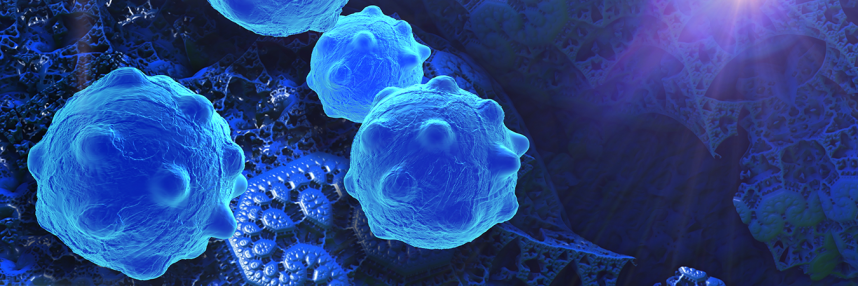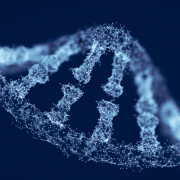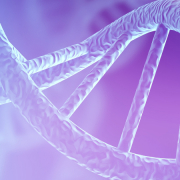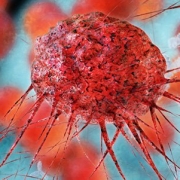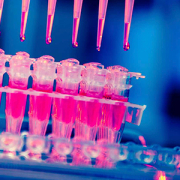Combating cancer: POLQ inhibitors
We explore a novel treatment that could help treat cancer by preventing DNA repair in tumours
A new class of drugs has been discovered that could be effective against cancers associated with the BRCA1 or BRCA2 genes, according to new research from The Institute of Cancer Research, London (ICR). They work by interrupting an important DNA repair pathway for tumours, causing them to be damaged as they replicate.
BRCA genes: what do they do?
BRCA1 and BRCA2 are among the best-known genes, notably having had their profile raised by Angelina Jolie’s preventative mastectomy in 2013. Most people will know that they are associated with breast cancer, but less people are aware of why.
The function of these genes in the body is related to repairing damage to our cells’ DNA. Like every aspect of our bodies, DNA is subject to wear-and-tear, but if too much damage accumulates in the DNA of a cell, it will die.
The BRCA genes code for proteins that help repair double-stranded breaks in DNA. When a person has the typical, healthy version of the gene, these repairs help correct mutations that could otherwise lead to cancer, which is why BRCA1 and BRCA2 are known as ‘tumour suppressor’ genes.
Some variants in the BRCA genes result in the DNA repair proteins being less effective, and these are associated with a higher risk of breast, ovarian and prostate cancers.
Targeted therapies
DNA repair is so important to cell survival that cells have multiple repair pathways. Tumour cells associated with BRCA will have lost one of these pathways, and targeted therapies can take advantage of this: by inhibiting other DNA repair pathways, mutations can be built up in the tumour cells to kill them.
Targeted therapies already exist for BRCA-related cancers – most notably a class of drugs called PARP inhibitors. These are already available on the NHS for some types of cancer, and clinical trials are looking at whether they could be used more widely.
PARP inhibitors work by targeting a protein called PARP1, which repairs single-stranded breaks in DNA. If these are not repaired, they can become double-stranded breaks when the cell replicates. When the cell’s BRCA gene isn’t functioning correctly, these breaks cannot repair either. As replication is key to tumour growth, the more the cells replicate, the more damage will accumulate.
While PARP inhibitors have added new avenues of treatment for many patients, they are not a magic bullet, and some tumours do develop resistance to them over time.
POLQ inhibitors
The new class of drugs, called POLQ inhibitors, are being developed to interrupt a third repair pathway. The POLQ gene encodes an enzyme required for a different kind of double-stranded repair that the cell uses as a back-up when it cannot use the preferred method, such as when a BRCA variant is present.
To target the POLQ gene, researchers at ICR screened over 165,000 different compounds, testing them on human cancer cells in vitro, and also in rats. Several candidates were identified that successfully killed tumour cells while leaving healthy cells intact.
“Most exciting of all is the potential of combining POLQ and PARP inhibitor drugs to prevent the evolution of BRCA-associated cancers into more aggressive, drug-resistant forms – a major challenge that we see in the clinic,” said chief executive of ICR, Professor Paul Workman.
The researchers hope to begin clinical trials for POLQ inhibitors later this year.
For more information on the treatment as it is developed, follow this blog or visit the ICR website.
–


